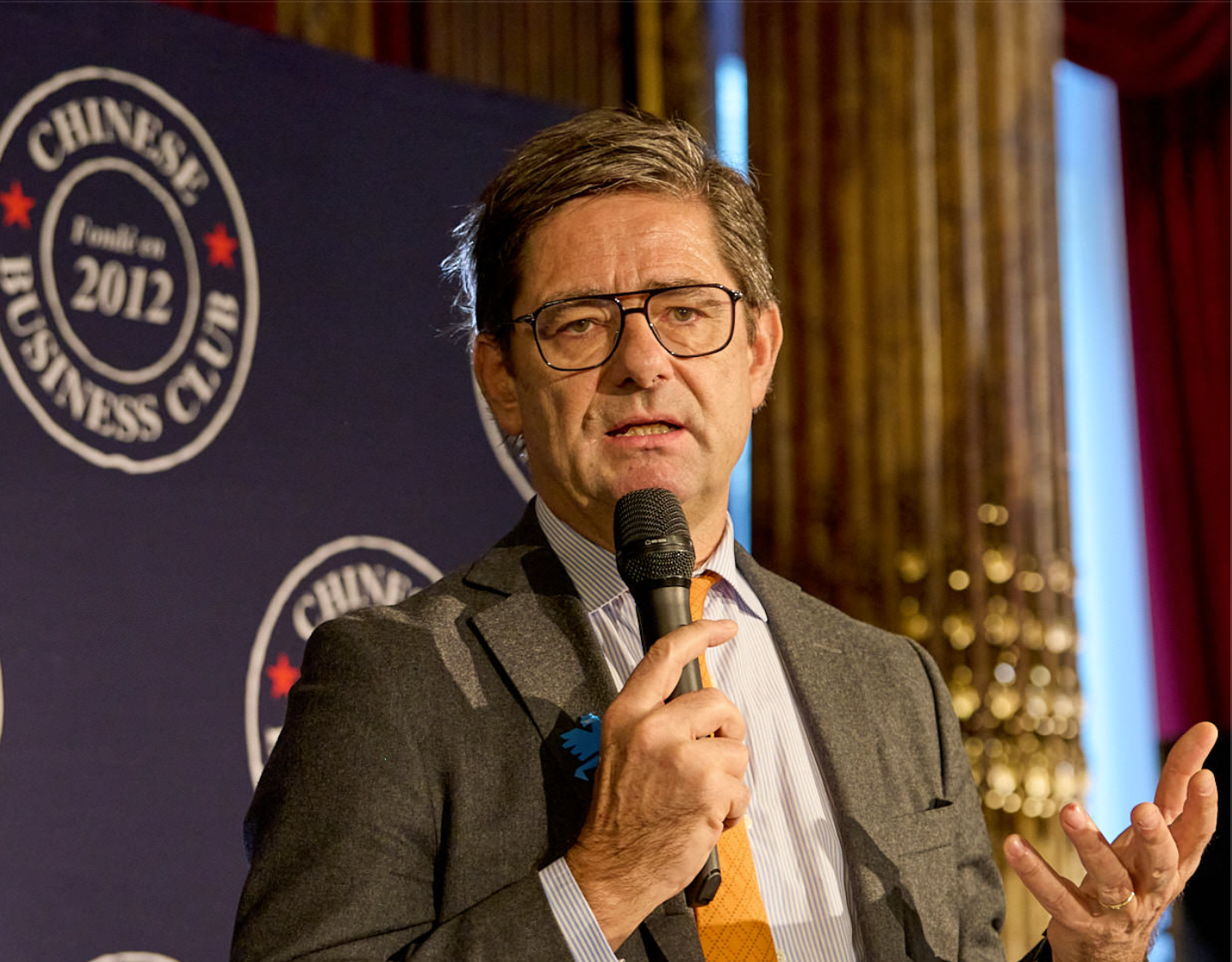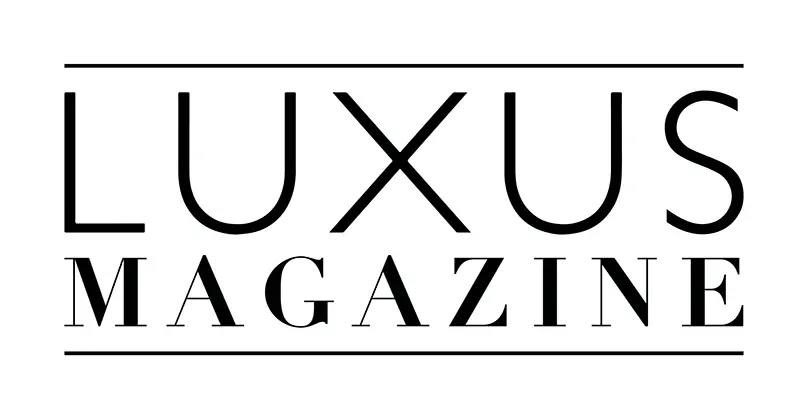INTERVIEW. Nicolas Dufourcq – Bpifrance: “We have never granted as much aid to innovation as in 2023”

Bpifrance is the investment bank behind the essential annual event of French entrepreneurship: the BIG (Bpifrance Inno Generation). Nicolas Dufourcq, its CEO, agreed to answer our questions while he was the guest of honor last December at the Chinese Business Club, the leading business network in France.
Having been at the helm of Bpifrance for ten years, Nicolas Dufourcq is set to break the record for longevity in the leadership of this investment bank, as he has decided to sign on for a third five-year term.
The impressive career of this HEC and ENA graduate, who became an inspector of finances, reflects a multicultural curiosity and an acknowledged taste for challenges, combining experience in both the public and private sectors.
The son of an ambassador father and a mother who was a secretary of state, his childhood was immersed in state service and the arts. He spent four years of his life in Japan, another four in the USSR, and more than two years in Brazzaville, Congo. Although he embraced public service from the ages of 25 to 31, his career path also resembles a true odyssey marked by cultural shocks.
In 1994, he joined France Telecom, working for 10 years alongside the management, before becoming an adviser and then director of several branches. He then joined the adventure of Wanadoo as CEO at the time of its stock market listing. In 2003, he spent ten years with the consulting firm Capgemini as director for Central and Southern Europe before becoming the group’s CFO and a member of the COMEX, elevating the company to a global level.
It was in 2013 that he joined Bpifrance, also known as the Bpi, this investment bank regulated by the ECB.
This flagship of 5,000 employees managing 250 million euros in lines remains one of the main supports of innovation and the entrepreneurial ecosystem in France, both financially and in terms of advice and education. Bpifrance indeed manages 8,000 advisory missions. Through its accelerators – real schools for SMEs – the bank integrates 1,000 companies per year. The institution has an important Executive Education program for SMEs, ETIs, and not just startups.
Luxus Plus: At a time when fundraising for French Tech is becoming scarce and complicated by the demand for profitability, has Bpifrance also scaled back its financing of the tech ecosystem in 2023?
Nicolas Dufourcq: Quite simply, thanks to France 2030, we have never granted as much aid to innovation as in 2023: 9 billion euros. This figure represents about the same amount as the long-term credit we provide to companies.
Over the ten years of the Bpi, credit has thus increased from 4 to 9 billion euros and financing for innovation from 500 million to 9 billion euros. From 2024, all our financing products excluding equity (loans, grants, repayable advances) will decrease and stabilize at 5 billion euros per year.
In equity, tech represents 14 million euros under management at Bpifrance while we invest 1.5 billion euros per year in equity in tech. Everything else is financing the French economy.
LP: What about a sector like luxury, which, like aerospace, is particularly popular for export?
Nicolas Dufourcq: We indeed have a significant action on luxury and, in general, on all cultural and creative industries. We mainly support SMEs and startups in this sector. This represents thousands of companies and 2 billion euros of investment and loan per year.
LP: Given the investments made, is Bpifrance still profitable?
Nicolas Dufourcq: We are a profitable bank. In 2023, we generated 1.3 billion euros in net income, last year it was 1.5 billion. Since the creation of the Bpi, we have thus created an average of 7% value each year on our portfolio, and we stick to it. Indeed, we do not intend to go up to 10% because it would force us to no longer take a number of risks.
LP: Does this mean that Bpifrance is not experiencing the crisis?
Nicolas Dufourcq: From our point of view, the French economy is not doing badly. I hear a lot of comments about the crisis… The truth is that we are growing, we will be in 2024, the Bpi’s budget is a growth budget while its participation portfolio is essentially doing well.
These are constantly good news coming to us. Of course, entrepreneurs notice a certain slowdown in activity, but they are also very resilient. For many years, they have embarked on investment strategies, and they do not want it to stop. In a way, it’s performative. There is a fundamental dimension in the economy of self-hypnosis: they want to invest and transform their companies. However, the slowdown we are observing has nothing to do with the 2011-2014 period, which was more like a sort of melancholy in investment.
And there is no reason for a turnaround: there is line credit, the French economy is very banked, there are still a lot of equity funds.
LP: What place does Bpifrance hold today in the national and international economy?
Nicolas Dufourcq: At Bpifrance, we currently manage 60 billion in equity, 14 of which are for tech. Everything else concerns the family ETI, the big industrial groups of the CAC40, SMEs… We make a lot of investments. I thus discovered that in 2023, depending on the quarter, Bpifrance was the world’s No. 1 or No. 2 after the American KKR. Outside of venture capital, we make almost 400 deals a year.
The company is also extremely attractive to young people today. On Glassdoor, we are the only bank in the French Top 20 across all sectors, just ahead of the big American tech companies. In private equity, we are even the first company designated by students graduating from engineering and business schools.
LP: How do you explain such an appetite for your company among the youth?
Nicolas Dufourcq: We manage to do two things at the same time: on one hand, we are very great professionals in our fields (credit, equity, advice) – and recognized as such by everyone – and at the same time, we pursue a unique mission that resonates with the youth: to serve France.
LP: What are the profiles of the companies that use your services and, above all, what is the Bpi’s entry ticket to finance innovation?
Nicolas Dufourcq: We are a very large Investment House that makes a lot of capital injections into family SMEs in the territories of France with tickets of 2, 3, 10 million euros but also very large tickets of 1 or 2 billion euros.
LP: How do you explain the pervasive gloom, particularly in the media? What is the main problem with investment in France?
Nicolas Dufourcq: I would say there is a cultural problem: a lack of appetite for risk in the French ecosystem, especially in terms of financing. We are in the process of reindustrializing the country, but we have a lot of difficulty finding private capital to join us in doing so. And this observation also concerns tech: it is very difficult to complete funding rounds in foodtech, spacetech, quantum… in short, everything that is the future of the French economy.
Attacking the global giants of artificial intelligence, with huge brand capital like Amazon, Tencent, Alibaba, Microsoft, and Google remains challenging. However, what prevents us from creating 50 Dassault Systems in Europe?
If we do not change, we will be a colony, but we have not always been one. We have become ultra-conservative on many issues while our social model, particularly generous, does not go towards financing innovation, which leads to a disconnect on the international stage. Indeed, it takes 100 billion dollars (200 billion euros) to have a generalist artificial intelligence platform that is competitive with Microsoft. But who will put up such a sum? We should not ask everything of the States, especially since they no longer have money, and what about the problem of European capital allocation. That said, I notice that in the United States, the culture of risk remains roaring. Overall, things are going rather well, but the roaring side of the culture of risk I still do not hear it.
LP: What evolution of investment do you see in the medium term in light of the climate emergency and deep tech?
Nicolas Dufourcq: I think the guarantee will find its way for credit. We need to derisk the private sector with a public guarantee. Currently, we guarantee 10 billion credits per year to very small companies, small SMEs for development, business transmission… If these credits were not guaranteed, there would be neither creation nor transmission of these very small companies. For Verkor, the Gigafactory of semiconductors in Dunkirk, 80% of the sum will be guaranteed by the State, this support remains a sine qua non condition. In investment funds, we will need more and more engineers.
As much as in a world à la Zuckerberg, you could have profiles from, like me, business school to judge the quality of projects, as much when it comes to doing Deeptech, it is better to understand science. You will therefore see more and more teams of investor-engineers appearing. For our part, we do everything we can to make people want to set up these teams. Simply, we will never put more than 20%: it will therefore be necessary for project leaders to find 80% of private money afterwards.
LP: Giving desire also goes through your flagship annual event: The BIG. It remains the largest business gathering in Europe with nearly 50,000 participants driven by an interest in entrepreneurship. What will be the theme of the 2024 edition next October?
Nicolas Dufourcq: You do well to talk about it. Each year for the Bpifrance Inno Generation (BIG) Salon we define a theme that allows us to animate all of our communities, especially the Frenchfab, which represents the entrepreneurs of the reindustrialization of France. If the theme of 2023 was pride, the next will be progress. So, see you on October 10, 2024, at the Accor Arena in Paris for a 10th edition that promises to be exciting again!
Note that the Chinese Business Club will welcome this Friday, February 2, the Franco-American former basketball player Tony Parker, who has since become an entrepreneur, notably in wine.
Lire aussi > HAROLD PARISOT (CHINESE BUSINESS CLUB) : SUCCESS STORY AND NETWORKING AT A HIGH LEVEL
Photo à la Une : Nicolas Dufourcq, CEO of Bpifrance © Chinese Business Club
[EN] VICTOR GOSSELIN IS A JOURNALIST SPECIALIZING IN LUXURY, HR, WEB3 AND RETAIL. HE PREVIOUSLY WORKED FOR MEDIA SUCH AS SPARKS IN THE EYES, WELCOME TO THE JUNGLE, LE JOURNAL DU LUXE AND TIME TO DISRUPT. A GRADUATE OF EIML PARIS, VICTOR HAS EXPERIENCED MORE THAN 7 YEARS IN THE LUXURY SECTOR BOTH IN RETAIL AND EDITORIAL. CULTIVATING A GREAT SENSIBILITY FOR THE FASHION & ACCESSORIES SEGMENT, HERITAGE TREASURES AND LONG FORMAT, HE LIKES TO ANALYZE LUXURY BRANDS AND PRODUCTS FROM AN ECONOMIC, SOCIOLOGICAL AND CULTURAL ANGLE TO UNFOLD NEW CONSUMPTION BEHAVIORS. BESIDES HIS JOURNALISTIC ACTIVITY, VICTOR ACCOMPANIES TECH STARTUPS AND LARGE GROUPS IN THEIR CONTENT PRODUCTION AND EDITORIAL STRATEGY. HE NOTABLY LAID THE FOUNDATIONS FOR FASHION & LUXURY TRENDY FEATURE ARTICLES AT HEURITECH AND WROTE THE TECH SPEECHES OF LIVI, INNOVATION INSIDER OF THE LVMH GROUP.************** [FR] Victor Gosselin est journaliste spécialiste des univers luxe, RH, tech et retail, passé par Sparks In The Eyes, Welcome To The Jungle, le Journal du luxe et Time To Disrupt. Diplômé de l’EIML Paris, il dispose de plus de 7 ans d’expérience dans le secteur du luxe aussi bien sur la partie retail que éditoriale. Cultivant une grande sensibilité pour le segment mode & accessoires, l’Asie, les trésors du patrimoine et le long format, il aime analyser les marques et produits de luxe sous l’angle économique, sociologique et culturel pour révéler de nouveaux comportements de consommation. En parallèle de son activité journalistique, Victor accompagne les startups tech et grands groupes dans leur production de contenu et leur stratégie éditoriale. Il a ainsi posé les bases des articles de fond tendanciels Mode & Luxe chez Heuritech ou encore rédigé les prises de parole tech de Livi, Innovation Insider du groupe LVMH.






